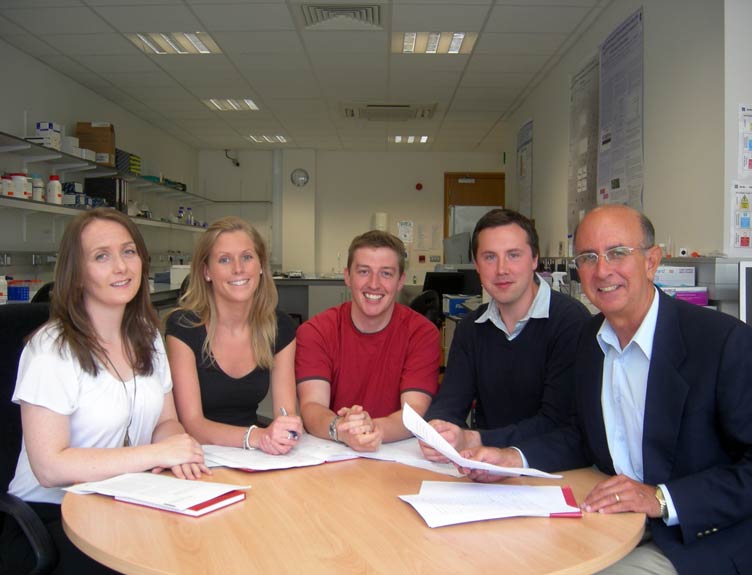RCSI cancer research study gains insights into predicting severity of a childhood cancer

A recent study by the RCSI Cancer Genetics Research Group, headed by Professor Ray Stallings, has revealed insights into neuroblastoma, the leading cause of childhood cancer deaths.
The findings may enable clinicians to predict the severity of the tumour, allowing them to devise customised treatments, which could potentially help children to avoid unnecessary chemotherapy.
The study has been highlighted in this month’s edition of the high impact journal Nature Reviews Clinical Oncology.
Neuroblastoma is a childhood cancer which manifests in tumours than can occur throughout the body, outside of the brain. The Research Group examined micro RNAs (miRNA) which are tiny regulatory molecules that have a major role in the progression of the cancer. By looking at the pattern of miRNAs, the team was able to identify patients with high-risk neuroblastoma, a disease associated with 15% of childhood cancer deaths, by identifying the most aggressive tumours, the researchers were able to predict neuroblastoma patient survival and this is expected to lead to more optimised therapy for patients.
The identification of the miRNA which results in the aggressive tumors has also revealed a new potential treatment for neuroblastoma. If the aggressive miRNA is removed from the tumour (chromosome 11q deletion) this may result in the tumor dying off. This type of therapy would be targeted and potentially less toxic than existing treatment.
Professor Stallings said: “Having our research highlighted by the internationally renowned journal Nature Reviews was very satisfying and confirms the importance of RCSI’s translational research strategy in the global research environment.”
The international research study was funded in part by the Children’s Medical and Research Foundation at Our Lady’s Children’s Hospital Crumlin and Science Foundation Ireland. The research team included Dr. Patrick Buckley, an IRCSET sponsored post-doctoral fellow, Dr Isabella Bray, Dr Kenneth Bryan and Leah Alcock from the RCSI Cancer Genetics Research Group as well as a team of collaborating scientists from universities in Belgium and Germany.
The RCSI Cancer Genetics Research Group is one of the world’s leading research groups in neuroblastoma research.



